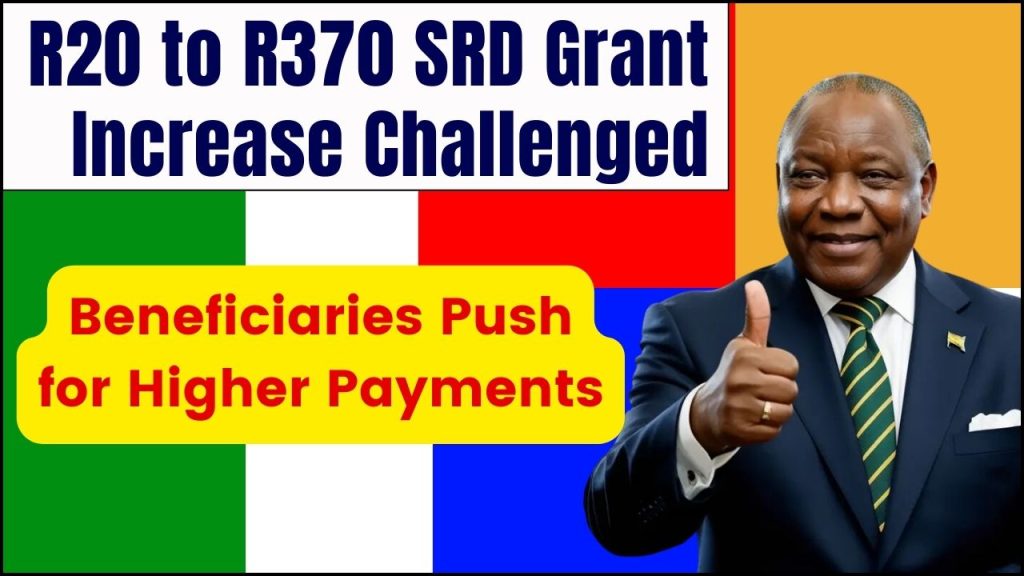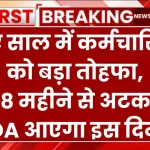
R20 to R370 SRD Grant Increase Challenged: The recent R20 increase in South Africa’s Social Relief of Distress (SRD) grant, raising the amount from R350 to R370, has sparked widespread debate and legal challenges. Advocacy groups and beneficiaries argue that the increment is insufficient to meet basic needs, especially in the face of rising inflation and economic challenges. This issue not only reflects the growing discontent among the nation’s vulnerable but also highlights systemic flaws in addressing poverty alleviation.
R20 to R370 SRD Grant Increase Challenged
| Key Aspect | Details |
|---|---|
| Grant Increase | Raised from R350 to R370 in April 2024 |
| Reason for Challenge | Advocates argue R20 is inadequate amid inflation and rising living costs |
| Beneficiaries Affected | 8.3 million approved out of 14 million applicants in March 2023 |
| Legal Actions | Advocacy groups like IEJ and #PayTheGrants are challenging the grant’s adequacy in court |
| Proposed Alternatives | Introduction of a Basic Income Grant (BIG) supported by Cosatu |
| Official Resource | SASSA Official Website |
The SRD grant has been a crucial support for millions of South Africans, but the recent R20 increase has highlighted its limitations in addressing poverty and unemployment. Legal challenges and calls for a Basic Income Grant reflect the need for more sustainable solutions. As the debate continues, the government faces pressure to address systemic issues and ensure that social support reaches those who need it most. A shift toward more inclusive and effective policies could significantly reduce poverty and inequality in the country.
What Is the SRD Grant?
The SRD grant was introduced in May 2020 during the height of the COVID-19 pandemic to provide temporary relief to unemployed individuals. Initially set at R350 per month, it was a lifeline for many in a country grappling with high unemployment rates and economic challenges. As South Africa’s economic hardships persist, the relevance of the SRD grant has only grown.
The grant has since been extended multiple times, with the latest extension running until March 2025. However, the recent R20 increase has drawn criticism, with many calling it insufficient given South Africa’s rising cost of living and inflation rates. While the government has cited budgetary constraints, critics argue that more needs to be done to protect vulnerable populations.
Why Is the Grant Increase Being Challenged?
Advocacy groups such as the Institute for Economic Justice (IEJ) and #PayTheGrants have taken the matter to court. Their primary concerns include:
- Insufficient Increment: The R20 increase represents a mere 5.7% rise, which does not keep pace with inflation or the soaring costs of essentials like food and electricity.
- Example: A basic grocery basket for low-income households costs over R4,900 per month, far exceeding the SRD grant. With fuel and electricity prices also climbing, the grant barely covers basic necessities.
- Exclusion and Bureaucracy: Of the 14 million applicants in March 2023, only 8.3 million were approved, leaving many without aid due to strict eligibility criteria. Bureaucratic hurdles and unclear communication have further alienated those in need.
- Inconsistent Payments: Many beneficiaries report irregularities in receiving the full grant amount, creating financial instability. These payment delays exacerbate the struggles of households already living hand-to-mouth.
- Erosion of Buying Power: Since its inception in 2020, the SRD grant’s buying power has eroded significantly due to inflation, making the R370 allocation even less impactful.
Impact of the Grant on Beneficiaries
For millions of South Africans, the SRD grant is the only source of income. Beneficiaries rely on the funds to cover basic needs, including food, transport, and shelter. Here are a few examples of its impact:
- Sipho’s Story: A 32-year-old from Soweto who has been unemployed for three years uses the grant to buy food staples like maize meal and beans. However, he admits that the money runs out quickly, forcing him to rely on family for support.
- Nompilo’s Dilemma: As a single mother, Nompilo uses the SRD grant to buy diapers and baby formula but struggles to cover other household expenses. Despite budgeting carefully, she often has to skip meals to ensure her children are fed.
- Thandi’s Experience: A disabled woman in rural Limpopo finds the grant crucial for buying medication and transport to healthcare facilities. However, delays in payments have forced her to borrow money at high-interest rates, deepening her financial woes.
Proposed Alternatives: The Call for a Basic Income Grant
One proposed solution is the introduction of a Basic Income Grant (BIG), which would replace the SRD grant with a more substantial and universal financial safety net. This concept has gained significant traction among advocacy groups and economic analysts.
Advantages of a BIG:
- Better Coverage: Unlike the SRD grant, a BIG would not exclude applicants based on stringent criteria. This universality ensures no one falls through the cracks.
- Higher Payments: Advocates suggest an amount that meets basic living costs, estimated at R1,335 per month, which is closer to the poverty line.
- Economic Stimulus: Providing higher grants could stimulate local economies as beneficiaries spend money on goods and services. Studies from similar programs in other countries have shown how cash transfers can bolster small businesses and improve community well-being.
- Reduction in Inequality: A BIG could address South Africa’s significant income inequality by providing a baseline income for all citizens.
Organizations like Cosatu have voiced strong support for this transition, urging the government to prioritize it despite fiscal constraints. They argue that the cost of implementing a BIG could be offset by redirecting wasteful expenditures and addressing corruption.
Challenges in Administering the SRD Grant
The South African Social Security Agency (SASSA) has faced several challenges in administering the SRD grant:
- Delayed Payments: Beneficiaries frequently experience delays, sometimes going months without receiving funds. This has led to mistrust in the system.
- Technical Glitches: Issues with online application systems have made it difficult for many to apply or track their payments. These glitches disproportionately affect older individuals and those in rural areas with limited internet access.
- Fraud and Corruption: Reports of fraudulent claims and corruption within the system have undermined trust. Tightening oversight and introducing advanced verification systems are essential to restoring credibility.
Steps for Beneficiaries to Address Issues
If you are a beneficiary experiencing issues with your SRD grant, here are some steps to follow:
- Check Your Application Status: Visit the SASSA Website and log in to track your application or payment status. The online platform provides detailed updates on approval, processing, and payment.
- Report Payment Delays: Contact the SASSA helpline at 0800601011 for assistance. Ensure you have your ID number and application reference handy for faster service.
- Update Personal Information: Ensure your banking details and contact information are up-to-date to avoid payment issues. Any discrepancies can lead to delays.
- Seek Legal Advice: Advocacy groups like #PayTheGrants and community-based organizations can provide guidance if you face systemic challenges. Some groups even offer free legal assistance.
- Utilize Community Resources: Many local NGOs and social workers can assist with navigating SASSA’s processes or connecting you to additional support services.
FAQs About the SRD Grant
1. Why was the SRD grant increased to R370?
The government cited budget constraints and inflation as reasons for the modest R20 increase. However, advocacy groups argue this explanation fails to address the urgent needs of beneficiaries.
2. Who qualifies for the SRD grant?
Unemployed South Africans aged 18-59 with no other sources of income are eligible, provided they meet specific criteria set by SASSA.
3. What happens if I don’t receive my payment on time?
You can contact SASSA directly to report the issue or seek assistance from advocacy groups. Keeping records of all correspondence is crucial for resolving disputes.
4. Is there a chance the SRD grant amount will increase further?
Advocacy groups are pushing for higher payments, but any changes will depend on court rulings and government budget allocations.
5. What is the future of the SRD grant?
The grant has been extended until March 2025, but its long-term future depends on government policy and legal outcomes. There is growing pressure to transition to a Basic Income Grant.











